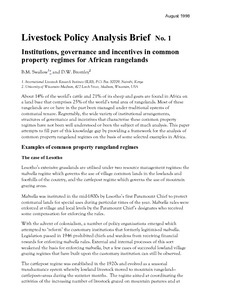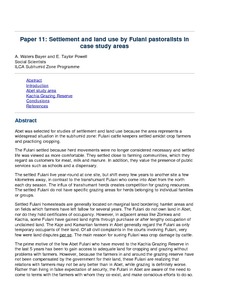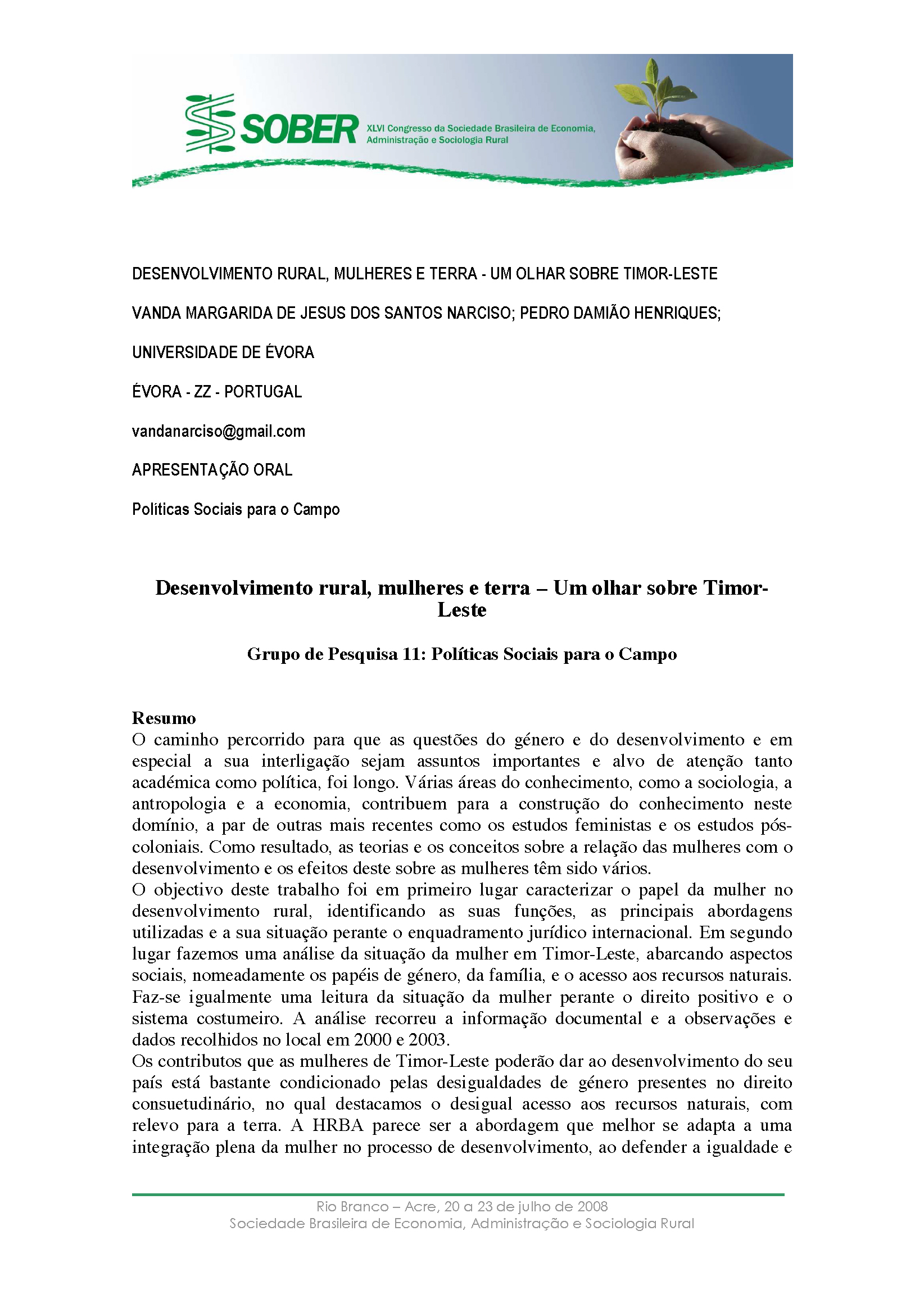Hypotheses on inland valley development for smallholder dairy production in three West African countries Côte d'Ivoire, Mali and Nigeria
A set of pre-formulated hypotheses about the potentials of inland valleys to agricultural production in general, and livestock (dairy) - based enterprises in particular, were tested with data collected from five regions comprising 71 villages/towns and 630 households in three countries (Nigeria, Mali and Côte d'Ivoire).








